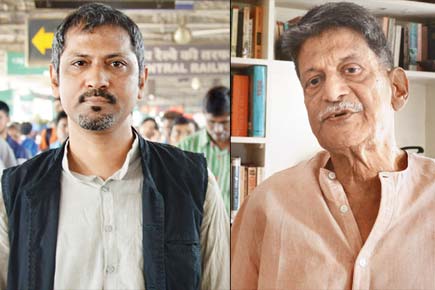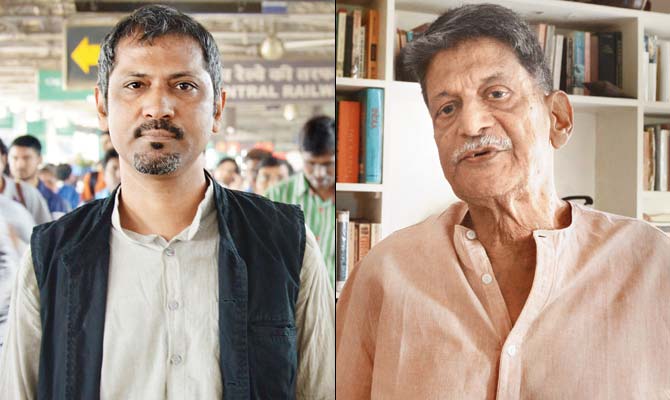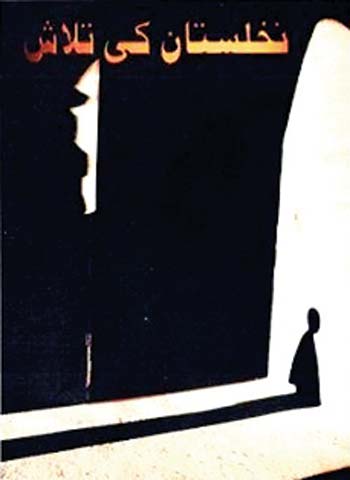As Urdu author Abdul Rahman Abbas decides to take on the obscenity law, here’s looking at how censorship has ailed literature in India

![]() Last week, Urdu author, Abdul Rahman Abbas emerged victorious in a decade-long court case. Two paragraphs of his novel, Nakhlistan Ki Talash was found obscene by a girl student in 2005 and a case was lodged against it. In the decade of the struggle, Abbas even spent a night in jail. After he emerged victorious, he decided to fight on. Because the fight, he points out, is a larger one. “It is a strange law to have where anyone can find something obscene and a writer is dragged to court,” the Mumbai-based author says. He points out that books charged under this law almost form a hall of fame, with Saadat Hasan Manto and Ismat Chughtai leading from the front. “This is a British law, which emerged from a morality that doesn’t originate in India but imposed on us. Why should we continue to use it?” Abbas finds echo in Jadavpur University professor, Abhijit Gupta, who teaches a course on censorship in literature. Gupta says that this law, that came from the Obscene Publications Act of 1857 of the colonial United Kingdom has been done away with there.
Last week, Urdu author, Abdul Rahman Abbas emerged victorious in a decade-long court case. Two paragraphs of his novel, Nakhlistan Ki Talash was found obscene by a girl student in 2005 and a case was lodged against it. In the decade of the struggle, Abbas even spent a night in jail. After he emerged victorious, he decided to fight on. Because the fight, he points out, is a larger one. “It is a strange law to have where anyone can find something obscene and a writer is dragged to court,” the Mumbai-based author says. He points out that books charged under this law almost form a hall of fame, with Saadat Hasan Manto and Ismat Chughtai leading from the front. “This is a British law, which emerged from a morality that doesn’t originate in India but imposed on us. Why should we continue to use it?” Abbas finds echo in Jadavpur University professor, Abhijit Gupta, who teaches a course on censorship in literature. Gupta says that this law, that came from the Obscene Publications Act of 1857 of the colonial United Kingdom has been done away with there.
ADVERTISEMENT

Abdul Rahman Abbas and Kiran Nagarkar
He points out that censorship has a long history and the course he teaches includes a historical survey from historic Rome to The Satanic Verses. He breaks down censorship into three kinds: Religious, political and censorship for obscenity. “Censorship has historically failed to prevent books from being read. When Thomas Paine’s (English-American political activist, philosopher, political theorist) Rights of Man (1791) was banned, he actively encouraged the piracy of his book (It is one of the world’s most widely read books). In the time of Internet what is the point of banning. Everybody has a copy of banned books,” he reveals.

Nakhlistan Ki Talash
Write free
Mumbai-based author Kiran Nagarkar considers literature the highest form of freedom of expression and lauds the fight against arbitrary censorship, though he says it is 60-years too late. “I have faced trouble all my life as a writer. It is a sad state of affairs now when a university has to consider banning poems by the likes of Arun Kolatkar because the youth wing of a political party does not like it,” he says, adding, “We do not find persecution of Dalits for skinning cows obscene but words are criminal. Charges against a writer are often not examined and compares it with the recent arbitrary throwing about of the term, sedition. It’s unfortunate that the country isn’t coming together to prevent this. It is discouraging for creative people and may lead to self censorship, which is the worst kind of censorship,” he admits.
What’s literary?
He dismisses claims that swear words diminish literary value. “It is contextual. If situations demand, there has to be truthfulness in portrayal. I have known people who use swear words affectionately. I have known families where a grandfather swearing in front of a grandson is normal. How does one write about them truthfully? Have you heard teenage boys speak? How does one write about them?”
Abbas wants to build support against the law by inviting writers to write against this law, followed by a seminar to bounce of ideas. “After gathering support, I intend to start a petition,” he says. “Banning a book can never be a solution. A response to offense in a book can only be another book,” he signs off.
 Subscribe today by clicking the link and stay updated with the latest news!" Click here!
Subscribe today by clicking the link and stay updated with the latest news!" Click here!






